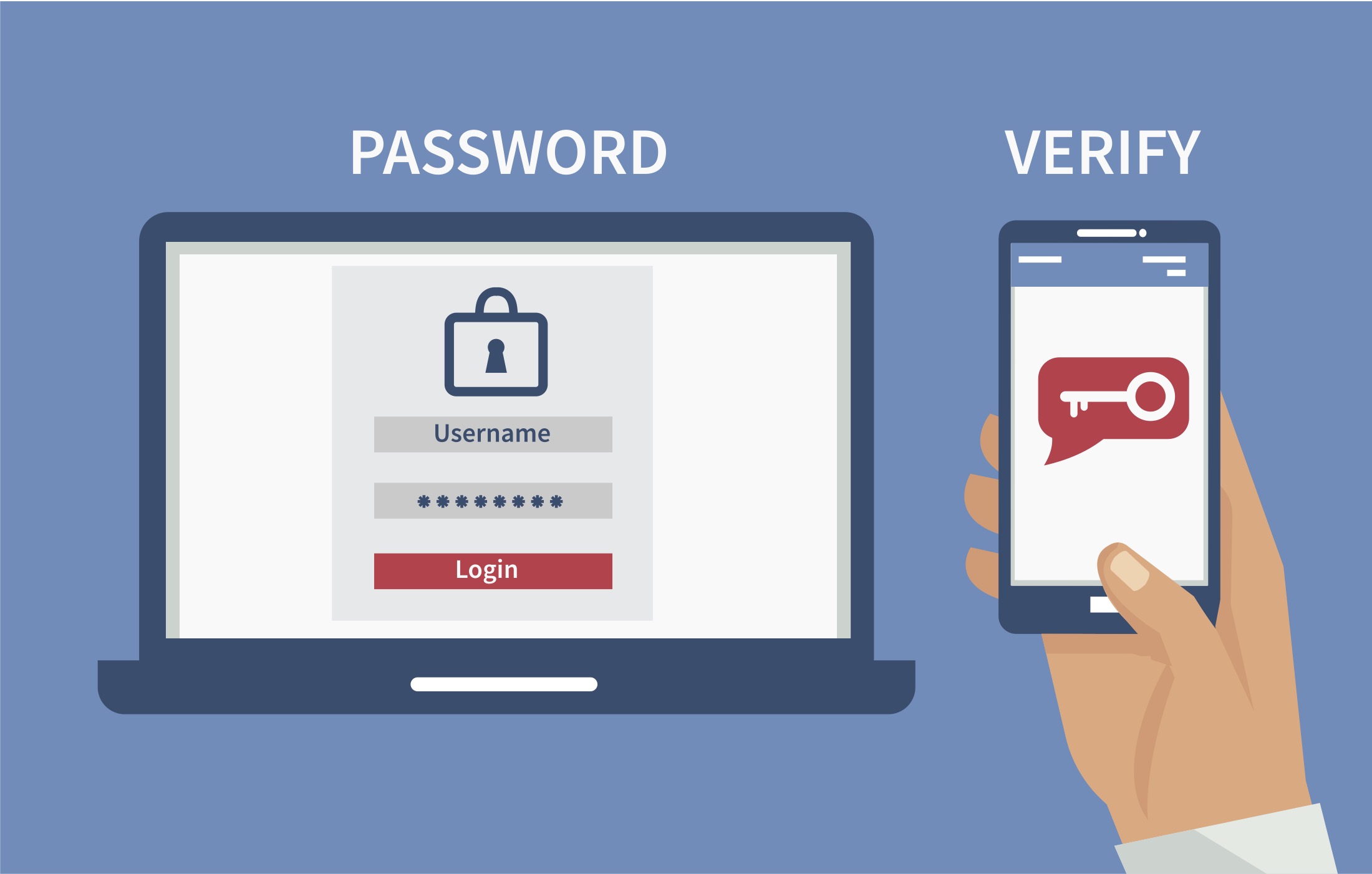Protect Your Accounts with Multi-Factor Authentication. Multi-Factor Authentication is the industry standard for account protection and information security. Multi-Factor Authentication, or MFA, is a method of gaining access to an account you own (an application, website, network, etc.) by using both a traditional username and password login and a second, separate form of identify verification.
At its core, MFA asks the question, “Are you really who you say you are?” In most cases, a user enters a username and password, alerting the MFA application as to who is trying to gain access. If the password and the username match, the application sends a second check, usually in the form of a code or push notification sent to a cell phone. Other types of MFA second checks include PINs, fingerprints, keyfobs, or facial scans. Once this second check is completed, the user’s identity is fully verified, and they are granted access.
The Why
So why the extra steps? Unfortunately, passwords are crack-able, either through the use of sophisticated computer programs or social engineering attacks like phishing. And once a password is cracked, accounts without MFA are able to be unlocked and exploited, so protect your accounts with multi-factor authentication.
However, if a user does have Multi-Factor Authentication and a hacker cracks their password, the user will be notified via their MFA method that someone is trying to access their account and can deny the entry. This not only prevents the immediate login attempt but also alerts the user that their password may be compromised and should be updated to something new.
Although having a complex password is still recommended, passwords alone are no longer enough to ensure account security. According to Google’s research on basic account hygiene, a complex password combined with MFA can prevent 100% of automated attacks, 96% of phishing attacks, and 76% or targeted attacks. Requiring only a minimal investment in security services and a slight change in the way your organization operates, MFA is a powerful tool.
By Joe Couillard, Client Relationship Manager





 Published: January 28, 2021
Published: January 28, 2021